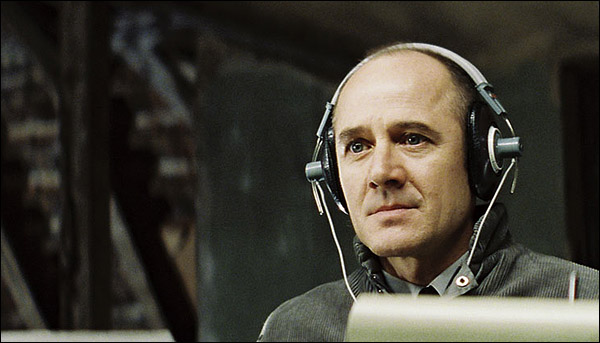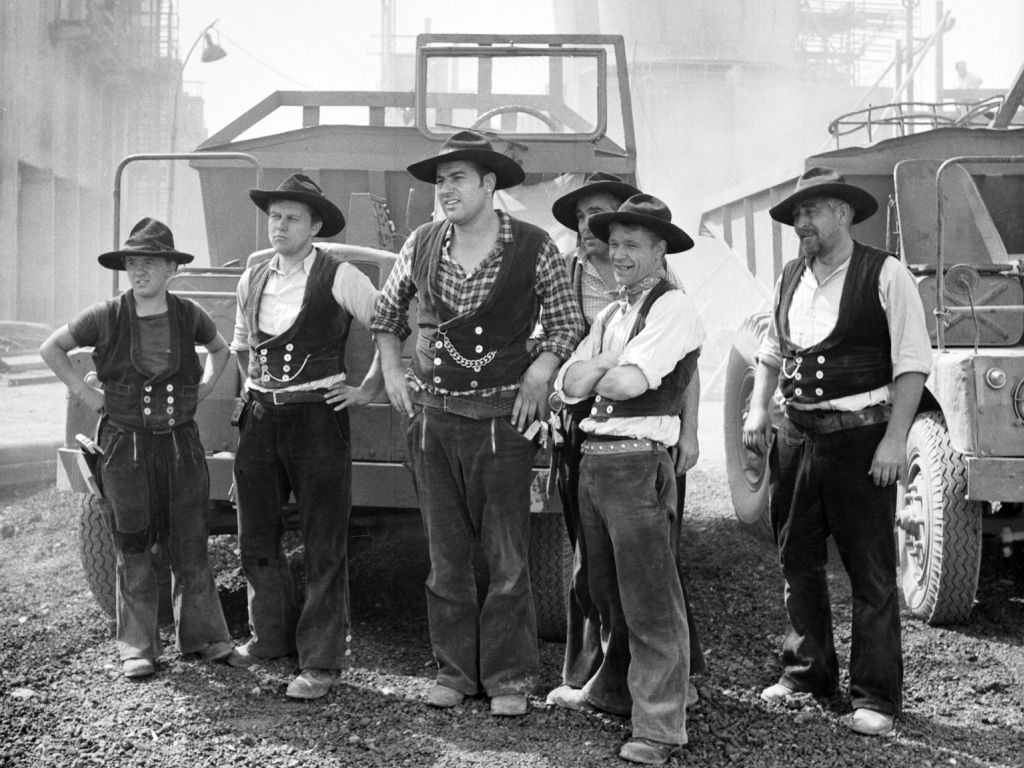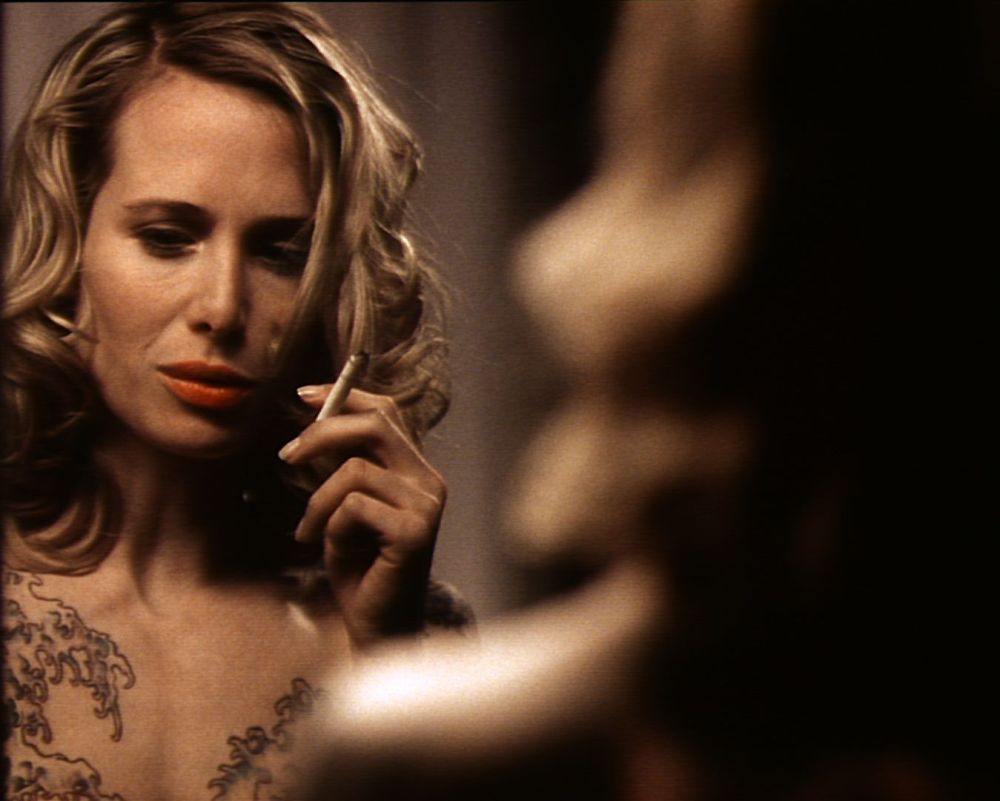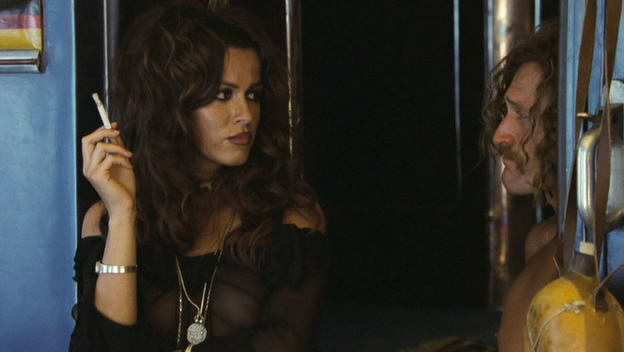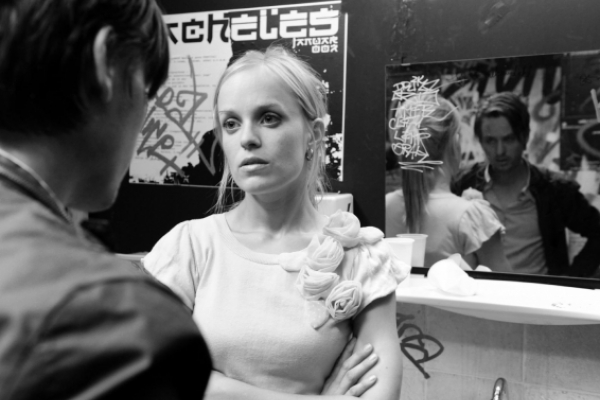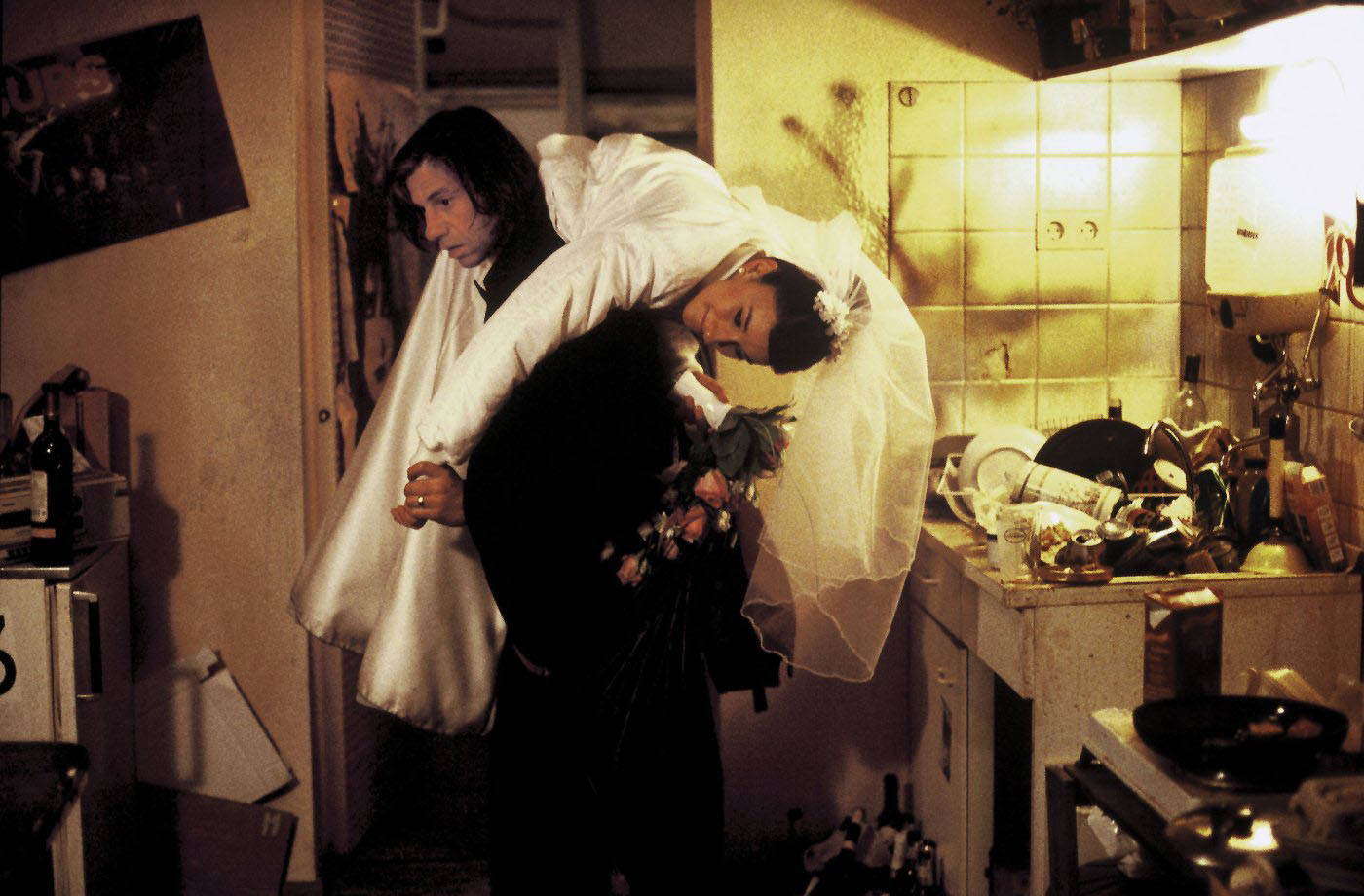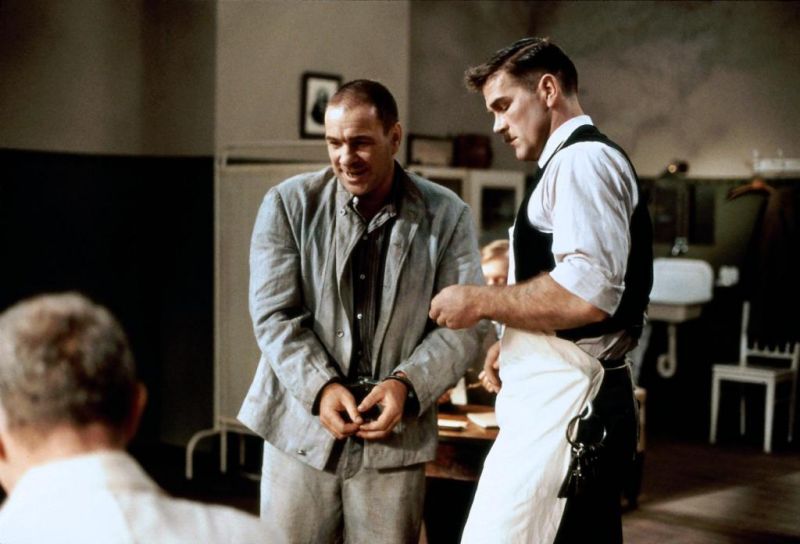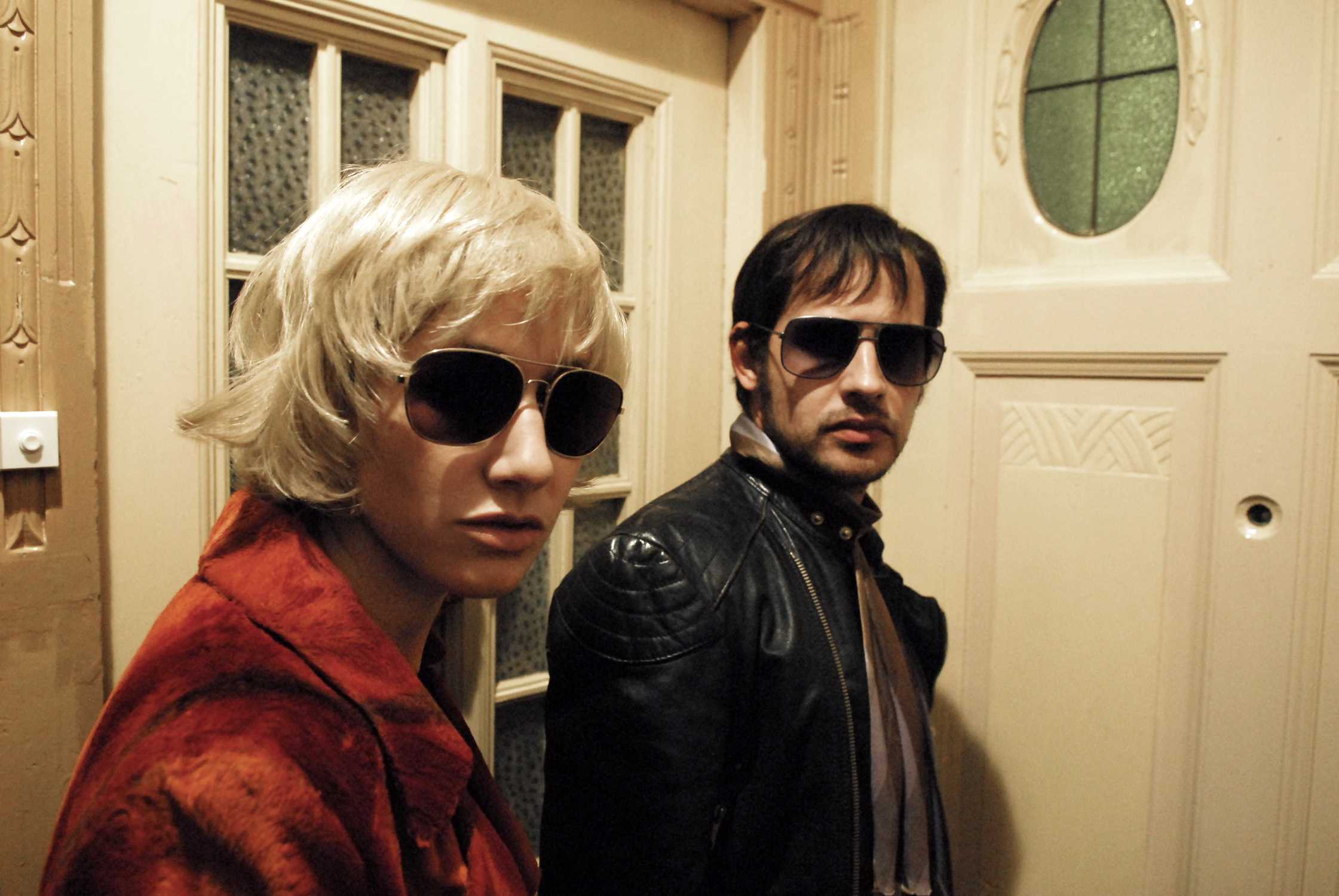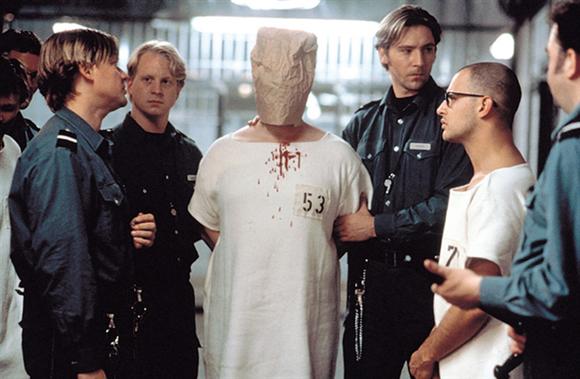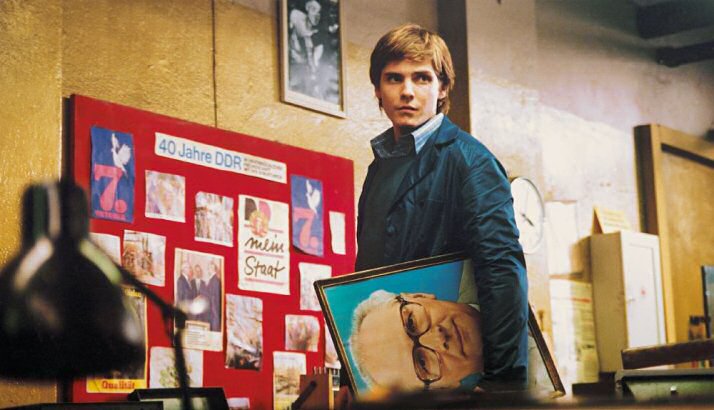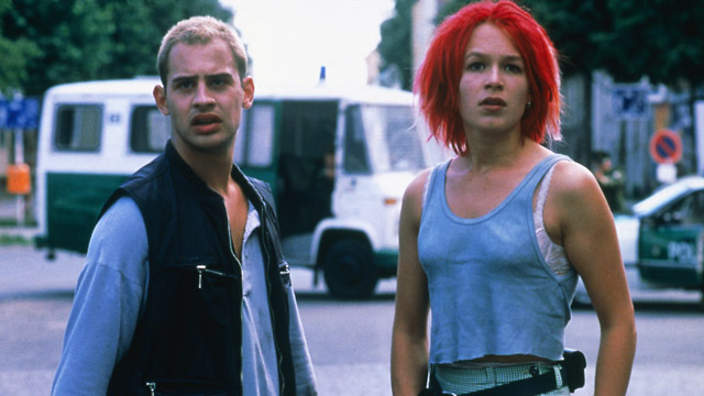Germany has been a vital contributor to the history of cinema right from the beginning, hitting the ground running when the first cinema for a paying audience in the world was opened in 1895 in Berlin. It was, however, during the interwar period that the social atmosphere relaxed and inspired film-makers created the Golden Age of German film-making.
‘The Cabinet of Dr Caligari’ and ‘Nosferatu’ almost single-handedly established horror as an independent genre. Fritz Lang’s Metropolis still stands tall as the godfather of all science-fiction movies. ‘The Blue Angel’ made Marlene Dietrich an international star, and she still ranks high on any essential female stars of all time list. Everything came to an abrupt halt with World War II, most directors fled to Hollywood with few returning after the war. Germany never recovered its top position in film-making, but the dramatic shifts in its history have produced some of the most remarkable movies in history.
The first signs of true recovery came with what is now known as New German Cinema, one of the many “new waves” which occur constantly in national cinemas around the world. One of the eclectic movement’s starting points was Alexander Kluge’s 1966 ‘Yesterday Girl’.
The movement’s ‘big four’ – R.W.Fassbinder, W. Herzog, Wim Wenders and Volker Schlöndorff are the architects of the relaunch of German cinema, together with important female directors such as Margarethe von Trotta or Helma Sanders Brahms. Their movies are avant-garde, overtly political, literary, poetic and raw. There is daring confrontation with current social realities and with Germany’s complicated past. Many are true wake-up calls. They have contributed vitally to Germany’s evolution and intellectual renaissance.
Most movie-goers, however, are familiar with German movies of the last decade or so. Slightly over-shadowed by the French or the Italians, current German cinema needs to be scrutinized more closely in order to be better appreciated. The influence of Hollywood has been immense. The best example would be any movie involving very successful actor/director Til Schweiger whose feel-good dramas and light-hearted comedies are great popcorn movies. In the area of social dramas and art-house films is where contemporary German cinema’s true strengths lie.
The so-called ‘Berlin school’ who is best represented by Christian Petzold offers mysterious tales reminding one of Lynch or Wenders is carving a respectable niche in the festival circuit. In the social drama category, Matthias Glasner’s aptly titled ‘The Free Will’ about a rapist trying to overcome his urges is highly recommended.
All in all, it is safe to recommend for adventurous viewers not afraid of subtitles to move beyond the old and new classics in this list and into the realm of German auteur cinema, East German science-fiction, German horror movies both old and new, Eurosleaze and many other underrated and undiscovered gems.
30. Trace of Stones (Frank Beyer, 1966)
The sole entry from the former East Germany might be criticized for being much too soft on communism, of whitewashing its horrors. One must know that director Frank Beyer was prevented from making movies for ten years after its release, reflecting the bureaucratic nightmare which stifled any perceived side-step. The fight to produce any meaningful artistic artifact was tremendously exhausting and fraught with expected and unexpected perils. The film was shown again in November 1989, after the fall of the Berlin Wall.
The plot is centered on the triangle of Hannes Balla (Manfred Krug) a drunken, rebellious construction foreman, not adverse to skinnydipping in the local pond and pilfering of construction materials, Party Secretary Werner Horrath (Eberhard Esche) who is sent to tone him down and unfazed technician Kati Klee (Krystyna Stypułkowska) who is supposed to offer practical advice. Half romance and half social drama, the film suffers a little from being too long, but its historical value and is uncontested.
29. Tattoo (Robert Schwentke, 2002)
This taut, high-concept, atmospheric thriller in the vein of ‘Se7en’ with some refreshing plot ideas is given a solid boost by the quirky chemistry between slacker, hard-partying rookie cop Schrader (August Diehl) and his veteran partner Chief Inspector Minks (Christian Redl). The Inspector casually blackmails Schrader to work for the homicide department after he busts him for possession of soft drugs at an improvised nightclub.
The case they proceed to work on involves people being literally skinned for their intricate tattoos. Soon they discover that a mysterious group hunts for 12 tattoos made by the same Japanese artists. Everything races for a surprising climax when a heretofore unknown 13th tattoo complicates things even more. Director Robert Schwentke went on to direct the suspenseful but far-fetched ‘Flightplan’ and the witty ‘Red’.
28. Eight Miles High (Achim Bornhak, 2007)
When gorgeous German teen Uschi Obermaier (Natalia Avelon) leaped from the dubious environs of the infamous ‘Kommune 1’ in Berlin right on the cover of ‘Playboy’, even the ‘Rolling Stones’ started paying attention. They invite her to party with them, but astoundingly are no match for a rowdy small-time hoodlum turned globetrotter Dieter Bockhorn.
Their raunchy affair takes to Pakistan and India and even prevents Uschi from becoming an international movie star when she turns down famed Italian producer Carlo Ponti. A lighthearted homage to the swinging sixties, the movie’s over-the-top charms are best personified by the antics of Keith Richards, played with hilarious effects by Alexander Scheer. Hippie nymphs can carry any movie!
27. A Coffee in Berlin (Jan Ole Gerster, 2012)
Gorgeously shot in black&white, a film to be enjoyed especially by fans of Jim Jarmusch’s first movies, Woody Allen’s ‘Manhattan’ or the more recent ‘Frances Ha’, Jan Ole Gerster’s debut manages to single-handedly revive German comedy mired in saccharine productions usually involving Til Schweiger or childish slapstick a la Otto Waalkes or Michael Herbig a.k.a. Bully.
A suitable companion piece to the delightfully anarchic Berlin comedy Black Sheep (2006) directed by Oliver Rihs, it is a more introspective and existential film, following the aimless, awkward entanglements of a college drop-out played with admirable restraint by Tom Schilling. To add weight, there’s also some confrontation with the guilt of Germany’s dark past which plays out like a sobering coda to the previous charming light-heartedness.
26. Head-On (Fatih Akin, 2004)
This is a raw and gritty love story between two German Turkish immigrants from Hamburg who slowly fall desperately in love after meeting in a psychiatric institution: Cahit (Birol Unel), a dour, 40-year-old alcoholic and equally self-destructive Sibel (Sibel Kekilli) who is trying to escape her family’s patriarchal possessiveness by proposing a sham marriage to Cahit. Loneliness, jealousy, lust slowly add up and the characters fall in love, thus triggering a series of mishaps which spell doom for the couple. It all plays out bittersweetly in Istanbul.
The authentic feel and the sensitive acting are some of the strong points of the movie, with believable secondary characters and inspiring locations adding up to Fatih Akin’s confident directing and tasteful use of music throughout the movie. The film won the top prize at the 2004 Berlin Film Festival.
25. The Deathmaker (Romuald Karmakar, 1995)
In the venerable tradition of the German Kammerspiel, the whole movie takes place in the interrogation room of a high security prison. The story is based on the transcripts of the interviews conducted by the prison psychiatrist (Jürgen Hentsch) with the notorious German serial killer Fritz Haarmann (Goetz George) who has killed dozens of young boys.
The movie rests almost entirely on the shoulders of Goetz George’s stunning performance who delivers some of the most graphic descriptions of atrocities in any serial killer movie. Fritz is a wily, manipulative and treacherous character, possessing an uncanny ability to enmesh both his interrogator and the viewer into his world of heinous decadence. Together with the gruesome Austrian movie ‘Angst’ (1983) directed by Gerald Kargl, it is one of the best European additions to the serial killer sub-genre.
24. The Baader Meinhof Complex (Uli Edel, 2008)
The most entertaining and fluid of the 1970’s German terrorism subgenre (which includes Margarette von Trotta’s ‘Marianne and Juliane’, ‘The Legend of Rita’ and ‘The Lost Honor of Katharina Blum’, both directed by Volker Schlöndorff) is also the most recent one, featuring solid performances from Moritz Bleibtreu who is one of the most recognizable German actors working today, together with Til Schweiger and Daniel Brühl, Martina Gedeck and Johanna Wokalek. They personify a trio of radicalized activists who turn deadly: Andreas Baader, Ulrike Meinhof and Gudrun Esslin.
The film functions as both thriller and social drama, it offers insight into the troublesome 1970’s in Germany and it manages to keep its distance from the controversial and flawed characters in their battle against an even more reprehensible social system. This is required viewing for anyone interested in recent German history and sweeping docudramas with an attention to detail.
23. The Experiment (Oliver Hirschbiegel, 2001)
Tarek Fahd (Moritz Bleibtreu), a journalist, takes part in a scientific study in order to write an article about it and have some fun. It is a social experiment supposed to last two weeks inspired by the infamous real-life Stanford prison experiment from 1971, structured like a role-play: half the selected subjects are prisoners while the other half play the guards.
Human nature being what we know it to be, everything soon turns drastically violent, involving gradual mind games and a mysterious black box. Connecting everything with Germany’s dark past, the perfect casting and the actor’s sure-shot delivery makes it an eerie and timeless viewing experience, devoid of stylistic bombast.
22. Good Bye, Lenin (Wolfgang Becker, 2003)
The year is 1989 and Christiane (Kathrin Sass) is the East German mother of two grown children, Alex (Daniel Brühl) and Ariane (Maria Simon). The three have grown especially close since Dad left them in 1978, apparently because he found a new love in the West. Their life behind the Iron Curtain pleases Christiane well enough, but Alex is restless. The last thing his mother sees before she collapses into a coma is Alex being beaten by riot police.
When she awakens eight months later, the Wall is down, Germany is reunified, and the Iron Curtain is now an enormous Coca-Cola banner. Ariane works at Burger King, and Alex has a job installing cable TV. Commercialism, capitalism and cross border freedom are things she’s assumed not be able to cope with, so her children weave an increasingly outrageous and far-fetched web of deceit, which includes fake news bulletins, procurement of food from the old days etc.
An allegorical family drama, Wolfgang Becker’s movie is a heart-warming viewing experience imbued with nostalgia and centered on one of the most momentous events in recent European history.
21. Run Lola Run (Tom Tykwer, 1998)
A teenager movie more than anything else, it offers all the cheap visual thrills one might imagine (kinetic animation, black and white flashbacks, fast forwards etc) while being the perfect homage to the MTV-generation of the 90’s. The story involves doomed patsy Manni (Moritz Bleibtreu) who manages to misplace a bag of money in the subway and his vermilion-haired lover and would-be savior Lola (Franka Potente), who has to help him get the money back to avoid retribution.
The movie plays out in three alternate versions of the same story (think Groundhog Day on steroids), all dependant on split-second decisions which crucially alter the characters’ destiny. Peppered by philosophical interludes disguised as flashbacks and held together by Lola’s constant running through the streets of Berlin, the movie manages to pack a wallop of sensory stimuli in its brief 81 minutes of running time.
